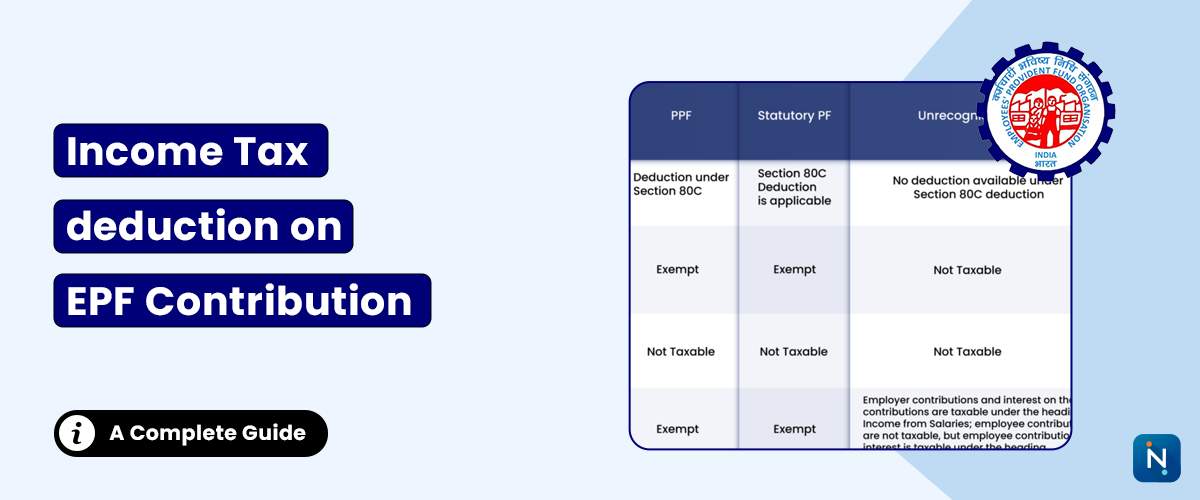
Income
Tax Deduction on EPF Contribution: A Complete Guide
The Employees’ Provident Fund (EPF) is one of the
most popular savings schemes in India, designed to help salaried employees
build a retirement corpus. Apart from securing your future, EPF also offers
significant income tax benefits under the Income Tax Act, 1961.
In this guide by IndiaLends, we’ll explain how EPF
contributions are taxed, the deductions you can claim, and important rules
to remember to maximize your savings.
EPF
Contribution Structure
Both you and your employer contribute to your EPF account
every month:
|
Contributor |
Contribution Rate |
Tax Treatment |
|
Employee |
12% of Basic + DA |
Eligible for tax deduction under Section 80C (up to
₹1.5 lakh) |
|
Employer |
12% of Basic + DA |
Employer’s contribution up to 12% of Basic + DA is
tax-free |
Tax
Benefits on EPF Contribution
Here’s how your EPF contributions qualify for tax
deductions:
|
Component |
Tax Benefit |
Relevant Section |
Limit |
|
Employee’s contribution |
Deductible from taxable income |
Section 80C |
₹1.5 lakh per year |
|
Employer’s contribution |
Exempt from tax up to 12% of salary |
Section 17(2) |
Above this limit, taxable |
|
Interest earned |
Tax-free if interest rate ≤ 9.5% p.a. and withdrawal after
5 years |
Section 10(12) |
- |
When EPF
Becomes Taxable
While EPF is usually tax-friendly, it can become taxable in
certain cases:
Example:
Tax Saving Through EPF
If your Basic + DA is ₹30,000/month:
Tips to
Maximize EPF Tax Benefits
EPF and
Other Tax-Saving Investments
EPF is one of the safest Section 80C investments. You
can combine it with ELSS, PPF, and tax-saving FDs to fully utilize your
₹1.5 lakh annual limit.
If you need funds before retirement, instead of premature
EPF withdrawal (which may trigger taxes), you can opt for an instant personal loan
from IndiaLends.
FAQs
Q1. Is EPF interest taxable?
EPF interest is tax-free if total employee contribution in a year does not
exceed ₹2.5 lakh and withdrawal is after 5 years of service.
Q2. Can I claim 80C deduction for voluntary contributions
to EPF?
Yes, Voluntary Provident Fund (VPF) contributions are also eligible
under Section 80C, up to ₹1.5 lakh in a year.
Q3. What happens if I withdraw EPF before 5 years?
The withdrawal amount becomes taxable, and TDS may be deducted if the amount
exceeds ₹50,000.
Q4. Is employer’s contribution to EPF always tax-free?
It is tax-free only up to 12% of your Basic + DA and within the combined ₹7.5
lakh annual limit (EPF + NPS + Superannuation).
Q5. Can IndiaLends help me with EPF withdrawal?
IndiaLends does not directly process EPF withdrawals but offers financial
solutions like personal loans to cover urgent needs until your EPF is
released.